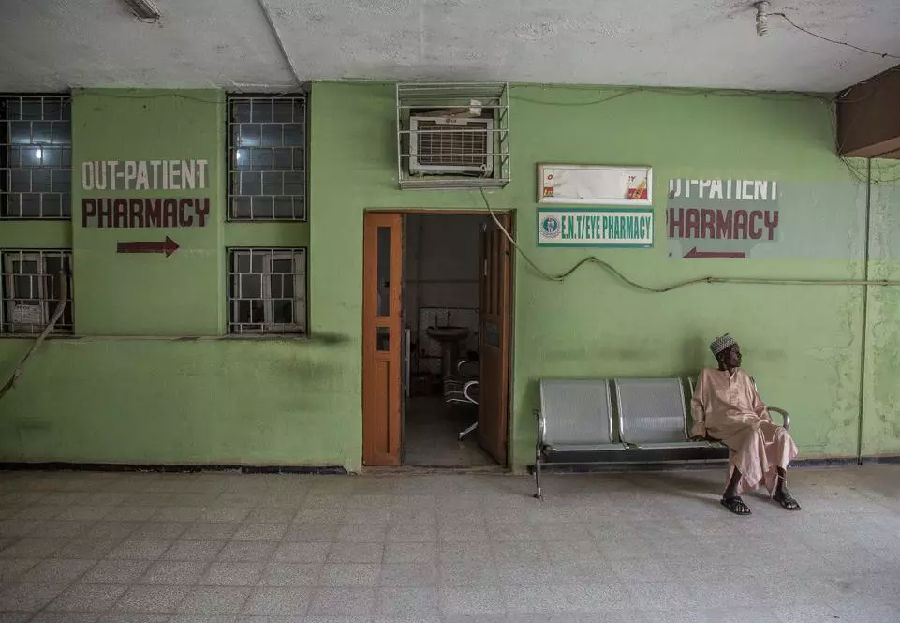As he envisioned it, the project, which Rotimi eventually named Human Heredity and Health in Africa, or H3Africa, would do far more than study African genomes:
项目最终命名为“非洲人类遗传和卫生”,或称之为“非洲H3”,正如罗蒂米所预想的,这个项目所研究的远远超出非洲基因组:
It would be a massive research effort led by African scientists, located in African institutions and directly benefiting the African population.
这个项目将包含大量研究工作,由非洲科学家领导、落实在非洲机构、直接造福非洲人民。
H3Africa would create parity between researchers there and in Europe and North America.
洲、欧洲及北美的研究人员之间建立平等关系。
A geneticist in Nigeria could compete with one at Harvard for funding—and win.
尼日利亚的遗传学家可以与哈佛大学的遗传学家竞争资金——并最终成功。
Such an approach would avoid the disheartening patterns of the past and instead directly benefit African communities.
此种做法将和过去令人失望灰心的模式不同,会直接有利于非洲社区。
In short, H3Africa would not just ensure that the genomics era landed squarely on the continent but that the kind of omission that characterized its early years would never happen again.
简而言之,“非洲H3”项目不但能确保基因组学能早日在非洲大陆上落地生根,而且也不会再出现早期那种被忽略的情况。

The NIH and the Wellcome Trust, a private charity based in the U.K., agreed to fund H3Africa for two five-year cycles.
美国国立卫生研究院和英国惠康基金会同意为“非洲H3”提供两个五年周期的资金。
With the first cycle of funding—$76 million—
第一个周期拿到了7600万美元的基金,
H3Africa established 29 research centers across the continent, including in Sudan, Sierra Leone and Ghana—countries rarely associated with science before now.
“非洲H3”在非洲建立了29个研究中心,包括苏丹、塞拉利昂和加纳——以前很少有国家和科学联系在一起。
A cervical cancer project is collecting genomes from 12,000 women in several countries to better understand the mutations that raise the risk of human papillomavirus triggering the malignancy.
一个宫紧癌项目正从数个国家12000位女性当中收集基因,以便更好地了解一种可增加人类乳头瘤病毒引发恶性肿瘤风险的突变。
At South Africa's University of Witwatersrand, geneticist Christopher Mathew is studying a kind of esophageal cancer common in Africa but rare in North America, and therefore neglected by research.
在南非威特沃特斯兰德大学,遗传学家克里斯多夫·马修正在研究一种食道癌,这种食道癌在非洲很常见但在北美很少见,因此一直被研究人员忽视。
"It's been very difficult to do anything like this in the past," he says,"given the weakness of our local currency."
“在过去要做此事非常困难,”他说,“考虑到我们当地货币的疲软。”
The 10 years of funding will total nearly $190 million.
这10年的资金总额将接近1.9亿美元。
But the vision of a genetics project free from ethical dilemmas has not proved easy to achieve.
但是,一个没有道德困境的遗传学项目的愿景并不是那么容易实现的。
Using money from non-African countries to fund research and the permitted inclusion of non-African collaborators in H3Africa-funded projects raises several concerns.
在“非洲H3”资助的项目中,使用非非洲国家资金资助研究、允许非非洲合作者加入,引起了一些忧虑。
"Some ethics committees in Africa,"says Jantina de Vries, a bioethicist at the University of Cape Town,"seem to believe that international collaboration is always exploitive."
开普敦大学生物伦理学家珍蒂娜·德·弗里斯表示,“某些非洲伦理委员会似乎认为国际合作总是具有剥削性的。”
For decades, experts from the U.S. and Europe have come to Africa, taken what they needed and left, a practice aptly nicknamed helicopter science.
几十年来,来自美国和欧洲的专家来到非洲,拿到所需就离开,这正是一种称为“直升机科学”的实践。
About 10 years ago, for example, an international group of geneticists took DNA samples from the eldest members of four communities of San,
例如,约10年前,一组国际遗传学家从非洲南部四个闪族人最年长的成员身上提取了DNA样本。
hunter-gatherers in southern Africa with the oldest known lineages on Earth.
闪族人是狩猎采集部落,拥有地球上已知最古老的血统。
"That project really did come, take samples and leave," de Vries says. San leaders were furious that they weren't asked for permission, which they found disrespectful.
“那样的项目真的来了,拿了样品就离开了,”德·弗里斯说。闪族人对于这种不经许可的行为表示愤怒,他们觉得不受尊重。
African scientists often end up with little involvement in the work using biological samples that they helped obtain.
非洲的科学家们通常很少参与在他们帮助下获得的生物样本的工作。
African patients often can't afford the drugs created with the help of their blood, spit and tissue.
非洲患者也负担不起在他们血液、唾液和组织协助下研究出的药物。
That history has left many researchers and would-be study participants skittish about genetic research.
这样的过往让许多研究人员和潜在的研究参与者对基因研究感到不安。
They worry that Africa will become an entire continent like Henrietta Lacks, the African-American cervical cancer patient whose family never knew that her cells had been exploited by scientists and widely used in medicine.
他们担心非洲会再次让海瑞塔·拉克斯的事情上演,海瑞塔·拉克斯是一名非裔美国子宫颈癌患者,其家人从来都不知道她的细胞曾被科学家利用过,并被广泛应用于医学。
译文由可可原创,仅供学习交流使用,未经许可请勿转载。













